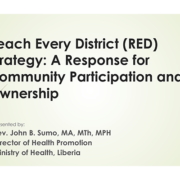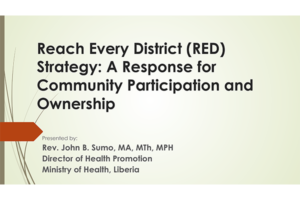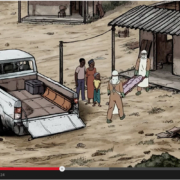Ebola Radio Spot – Infection Prevention and Control (2)
 This radio spot addresses the topic: “Why avoid direct contact during an Ebola outbreak?”, and is produced in 5 languages (French, Swahili, Kikongo, Lingala and Tshiluba).
This radio spot addresses the topic: “Why avoid direct contact during an Ebola outbreak?”, and is produced in 5 languages (French, Swahili, Kikongo, Lingala and Tshiluba).
Sources:
- Radio Script: Infection Prevention and Control (2) – English and French
- Audio File Infection Prevention and Control (2) – French
- Audio File Infection Prevention and Control (2) – Swahili
- Audio File Infection Prevention and Control (2) – Kikongo
- Audio File Infection Prevention and Control (2) – Lingala
- Audio File Infection Prevention and Control (2) – Tshiluba


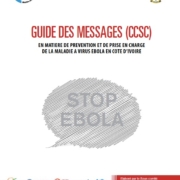
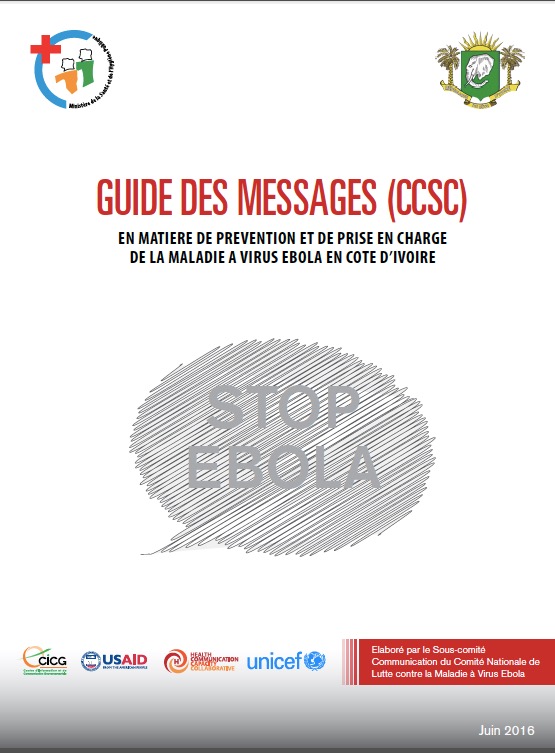 This message guide was produced in June 2016 to strengthen the coordination of the various information and education interventions developed to raise awareness about the Ebola epidemic in Côte d’Ivoire.
This message guide was produced in June 2016 to strengthen the coordination of the various information and education interventions developed to raise awareness about the Ebola epidemic in Côte d’Ivoire.
 This radio spot addresses the topic: Can property left behind by a deceased Ebola patient facilitate transmission of the Ebola virus, and is produced in 6 languages (French, Swahili, Kikongo, Lingala, Tshiluba and Kinande).
This radio spot addresses the topic: Can property left behind by a deceased Ebola patient facilitate transmission of the Ebola virus, and is produced in 6 languages (French, Swahili, Kikongo, Lingala, Tshiluba and Kinande).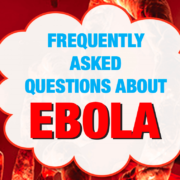
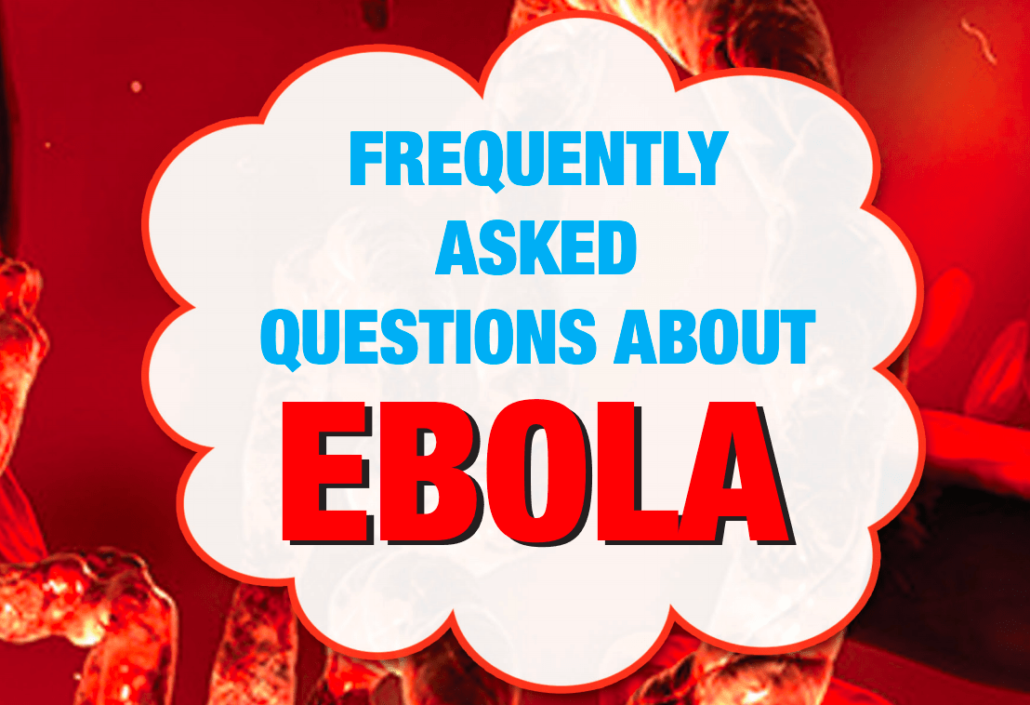 This illustrated booklet addresses Frequently Asked Questions about EVD, including general facts, modes of transmission, prevention, treatment and common misconceptions.
This illustrated booklet addresses Frequently Asked Questions about EVD, including general facts, modes of transmission, prevention, treatment and common misconceptions.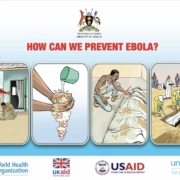
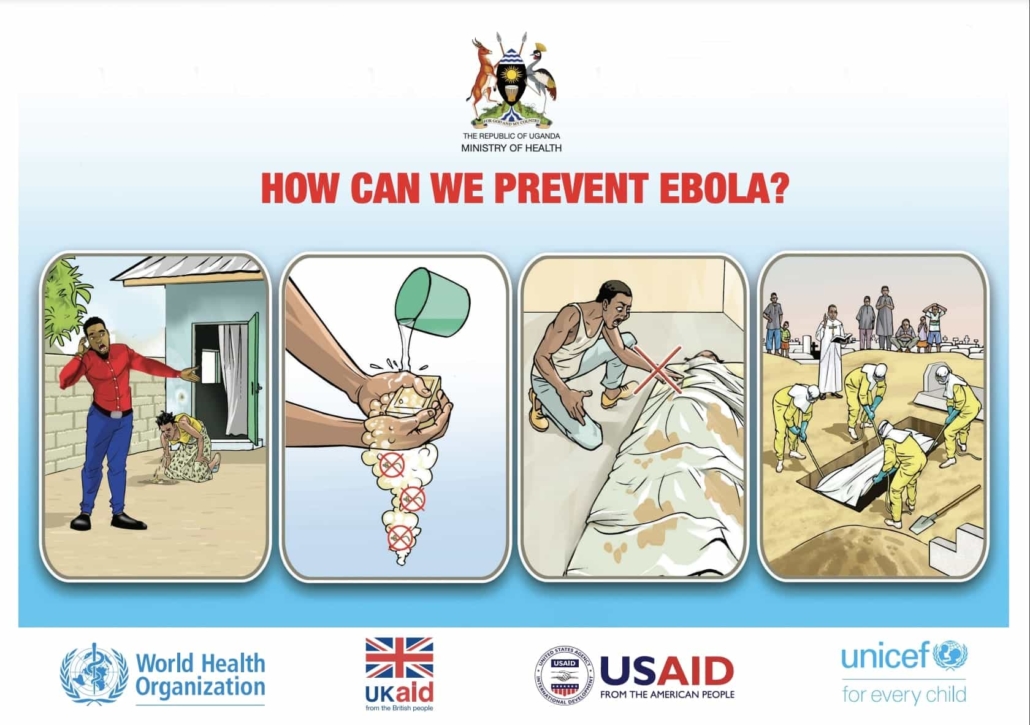 This resource consists of job aide cards with illustrations and talking points to guide health care workers’ conversations with community members. Topics include: general EVD facts, signs and symptoms, transmission, prevention, caring for the sick, safe&dignified burials, contact tracing and Ebola treatment units.
This resource consists of job aide cards with illustrations and talking points to guide health care workers’ conversations with community members. Topics include: general EVD facts, signs and symptoms, transmission, prevention, caring for the sick, safe&dignified burials, contact tracing and Ebola treatment units.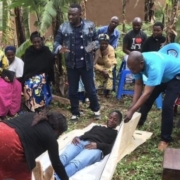
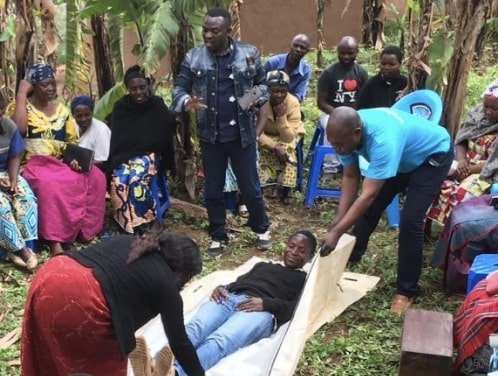 This Message guide provides key messages for various audiences (Communities, family members, survivors, leaders and government administrators and health care workers) on dignified and secure burial, IPC, vaccination, nutrition, medical care. Also included are messages for points of entry, survivors and on surveillance.
This Message guide provides key messages for various audiences (Communities, family members, survivors, leaders and government administrators and health care workers) on dignified and secure burial, IPC, vaccination, nutrition, medical care. Also included are messages for points of entry, survivors and on surveillance.